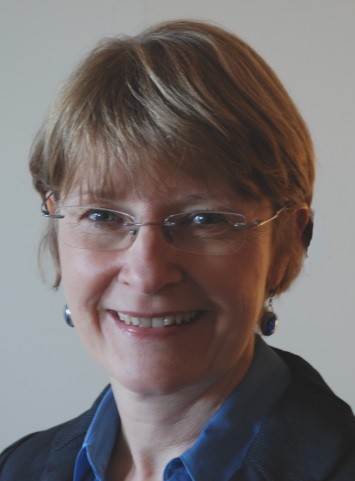Founder Biography

Patricia Ensworth is a business anthropologist with more than 25 years of leadership and management experience for diverse teams in global organizations. Her career has focused upon the development and implementation of innovative technologies that produce new products and services, transforming work process communities and customer experiences. Her publications and conference presentations provide information for technical professionals, anthropologists, and general readers.
She has acquired expertise in project and program management, qualitative and quantitative ethnographic methods, user experience research, business analysis, risk management, process engineering, vendor management, outsourcing, quality assurance, teambuilding, and cross-cultural communication.
As the founder and owner of Harborlight Management Services LLC (2003-present), Patricia works with clients in various industries and sectors, including financial services, healthcare, telecommunications, publishing, government agencies, and non-profits. Some of the projects she leads are innovative ventures aspiring to design new products and services. Others are forensic, seeking the root causes of problems and devising solutions to mitigate future risks. She excels at building relationships across organizational silos, functional areas, and cultural backgrounds, and enjoys the role of interpreter and negotiator improving communications between senior leaders and technical experts. She leads management training seminars and workshops in public courses and in private on-site engagements throughout the U.S.
Her expertise as a consultant is often based upon lessons learned as a manager employed by global organizations to lead strategic initiatives.
At UBS Investment Bank (2005-2007), Patricia was a Director in the Fixed Income, Rates and Currencies IT division. She was responsible for implementing the group's offshore outsourcing strategy. She managed the operational relationship with the leading offshore supplier of outsourced development and testing services, resolving critical issues involving security, performance and technology infrastructure, and substantially increased both the size of the engagement and the satisfaction of internal clients. In collaboration with development and testing managers, she advised IT project teams on success factors and best practices for offshore outsourcing. She united the testing managers from the various development teams to form FIRC IT's first cross-stream quality assurance function for coordinating outsourcing, budgeting, infrastructure capacity planning, and test automation strategies.
At Moody’s Investors Service (1993-2003), Patricia established and led the firm’s first software quality assurance group. She conducted assessments of the project management and software engineering procedures employed by development teams. She advised project managers on selecting tools and adapting processes to achieve quality improvements. When the organization created a Project Office, she served on the management team that defined and implemented appropriate methodologies. To ensure that the firm’s information systems operated effectively for users outside the United States, she represented the systems development group on the IT management committee supporting technology in the international offices. Working closely with technology managers in Europe and Asia, she coordinated globalization and localization issues for more than a dozen core software products upon which the firm’s day-to-day operations depended. She developed and delivered training in New York, London, and Tokyo. During her tenure at Moody’s she rose from the position of a staff tester to a Vice President of Systems Development.
At Merrill Lynch (1985-1987), Patricia was responsible for testing two international retail brokerage systems. In the role of a product manager, she acted as a liaison between the user communities and the development teams. She prepared marketing materials, analyzed requirements, wrote documentation, developed and delivered training, and provided technical support. She also managed the office automation systems at 150 U.S. branches, planning and supervising the transition from dedicated word processing equipment to PCs.
The introduction of PCs as a business tool caused realignments in the IT function at many organizations. At Teleprompter/Westinghouse (1977-1985), Patricia began her technology journey as an operator of a Wang word processing machine in the Legal Department. She managed document production for the cable television company’s franchising initiatives and became the enterprise-wide Wang system administrator. When the first personal computers were acquired, she joined a new team of PC experts created to mediate between the new “power users” in the business units and the central MIS department of mainframe programmers. She performed business and systems analysis to integrate the cable television company into new parent company’s existing energy and broadcasting operations. She developed applications for spreadsheets, databases and word processing programs, and conducted training for new PC users.
Patricia graduated from Northwestern University in 1974 with a B.A. degree in English and Phi Beta Kappa honors. She earned a M.A. degree in Anthropology from Columbia University in 1982. The subject of her master’s thesis was the business relations between energy companies and Native American tribes, and the effects of economic development upon traditional political structures.
Her professional certifications include Project Management Professional (PMP), Certified Software Quality Engineer (CSQE), International Software Testing Qualifications Board Foundation (ISTQB), and Certificate for English Language Teaching to Adults (CELTA).